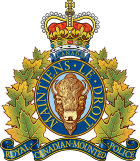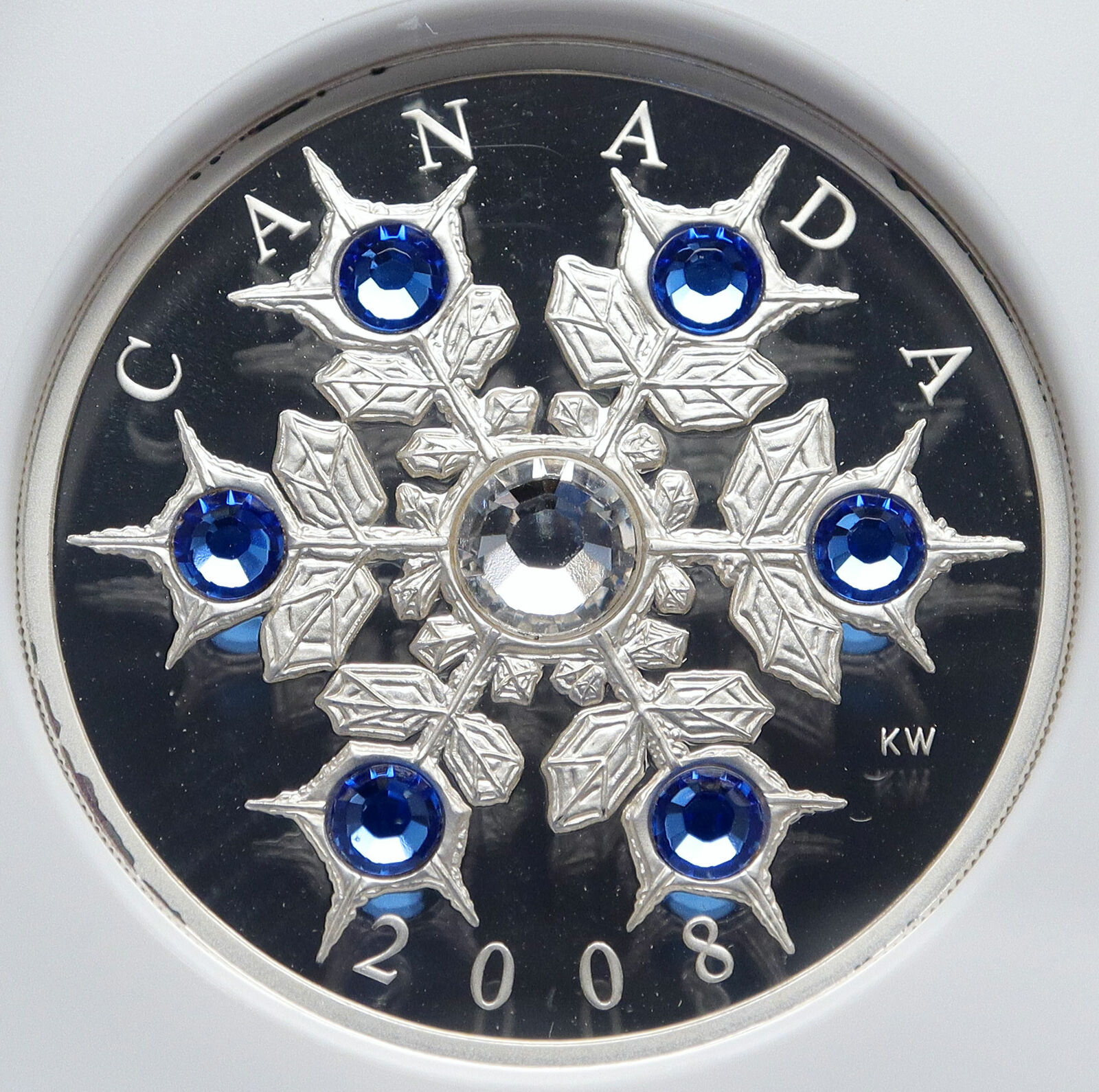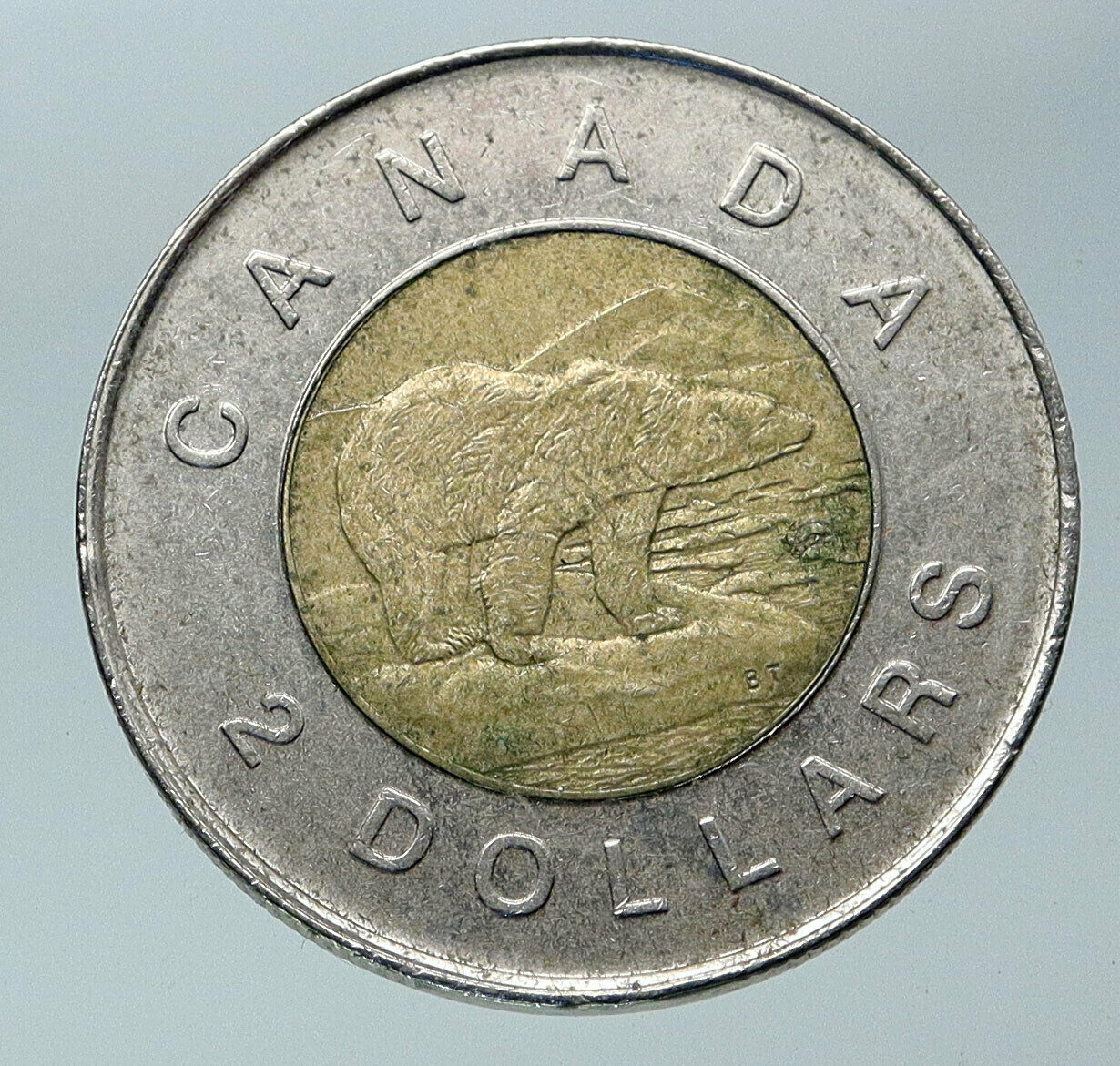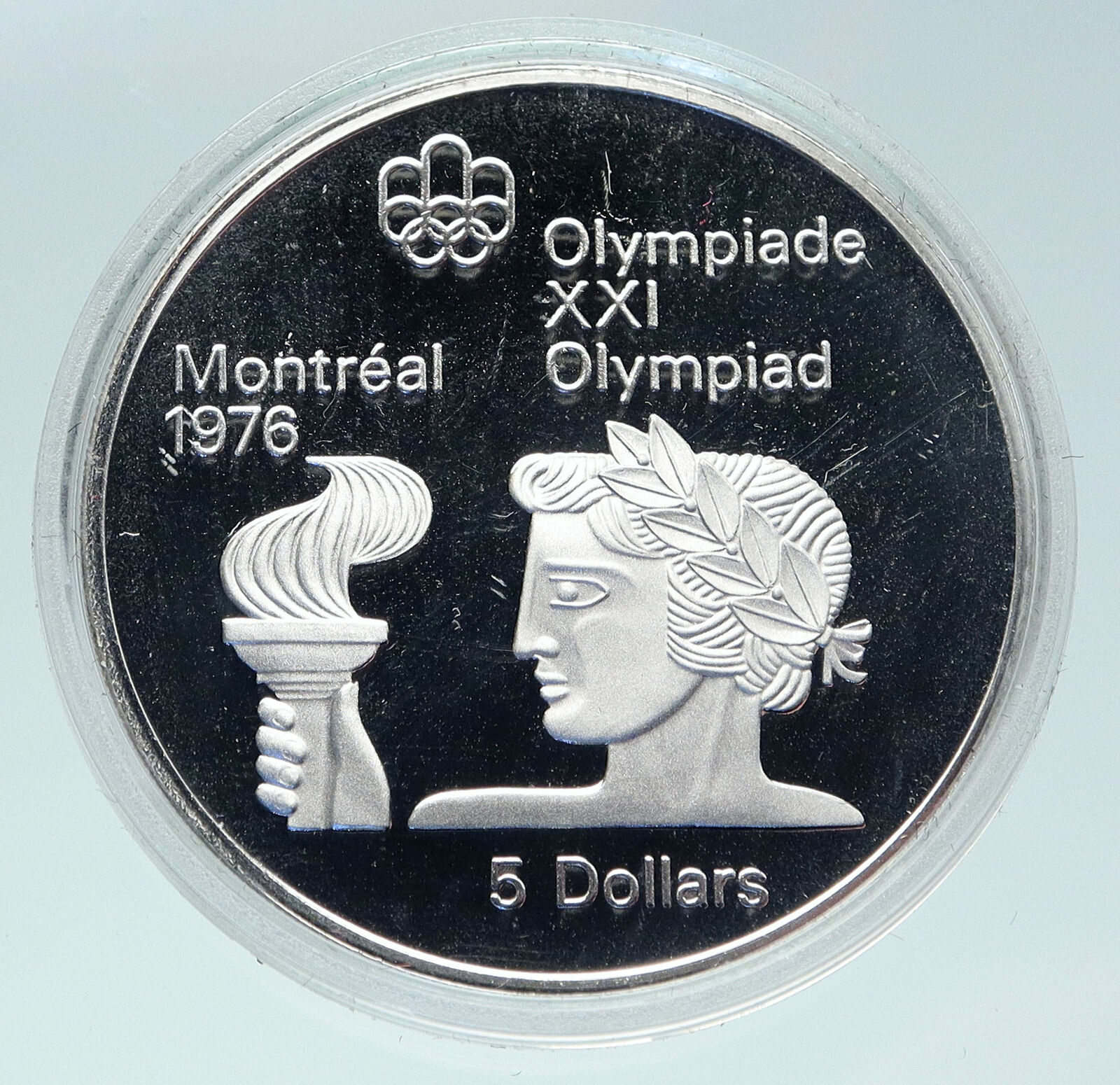|
Canada – 100th Anniversary of the Royal Canadian Mounted Police
1973 Proof-like Nickel 25 Cents 23.88mm (5.05 grams)
Reference: KM# 81; Schön# 78
ELIZABETH II D·G·REGINA, Bust of Queen Elizabeth II, as at 37 years of age, wearing tiara, facing right.
A mounted RCMP officer is surrounded with the face value, the inscription country name at the top, and the dates “1873” and “1973” on both sides.
You are bidding on the exact item pictured, provided with a Certificate of Authenticity and Lifetime Guarantee of Authenticity.
 The Royal Canadian Mounted Police (RCMP; French: Gendarmerie royale du Canada; GRC), commonly known in English as the Mounties (and colloquially in French as la police montée), is the federal and national police service of Canada. As police services are the constitutional responsibility of provinces and territories of Canada, the RCMP’s primary responsibility is the enforcement of federal criminal law, and sworn members of the RCMP have jurisdiction as a peace officer in all provinces and territories of Canada. However, the service also provides police services under contract to eight of Canada’s provinces (all except Ontario and Quebec), all three of Canada’s territories, more than 150 municipalities, and 600 Indigenous communities. In addition to enforcing federal legislation and delivering local police services under contract, the RCMP is responsible for border integrity; overseeing Canadian peacekeeping missions involving police; managing the Canadian Firearms Program, which licenses and registers firearms and their owners; and the Canadian Police College, which provides police training to Canadian and international police services. Despite its name, the Royal Canadian Mounted Police are no longer an actual mounted police service, and horses are only used at ceremonial events. The Royal Canadian Mounted Police (RCMP; French: Gendarmerie royale du Canada; GRC), commonly known in English as the Mounties (and colloquially in French as la police montée), is the federal and national police service of Canada. As police services are the constitutional responsibility of provinces and territories of Canada, the RCMP’s primary responsibility is the enforcement of federal criminal law, and sworn members of the RCMP have jurisdiction as a peace officer in all provinces and territories of Canada. However, the service also provides police services under contract to eight of Canada’s provinces (all except Ontario and Quebec), all three of Canada’s territories, more than 150 municipalities, and 600 Indigenous communities. In addition to enforcing federal legislation and delivering local police services under contract, the RCMP is responsible for border integrity; overseeing Canadian peacekeeping missions involving police; managing the Canadian Firearms Program, which licenses and registers firearms and their owners; and the Canadian Police College, which provides police training to Canadian and international police services. Despite its name, the Royal Canadian Mounted Police are no longer an actual mounted police service, and horses are only used at ceremonial events.
The Royal Canadian Mounted Police was established in 1920 with the amalgamation of the Royal North-West Mounted Police and the Dominion Police. The RCMP has long enjoyed an international cultural influence, appearing in films, television shows, and books since its formation in the early 20th century. The Government of Canada considers the RCMP to be an unofficial national symbol, and in 2013, 87 per cent of Canadians interviewed by Statistics Canada said that the RCMP was important to their national identity. However, the service has faced criticism for its broad mandate, and its public perception in Canada has gradually soured since the 1990s, worn down by workplace culture lawsuits, several high-profile scandals, staffing shortages, and the service’s handling of incidents like the 2020 Nova Scotia attacks.
The two most populous provinces, Ontario and Quebec, operate independent provincial police services, which, like the RCMP, are responsible for some provincial law enforcement and providing local police services under contract. The other eight provinces and all three territories contract at least some policing responsibilities to the RCMP, which provides front-line policing in those provinces under the direction of the provincial governments. Municipalities, which are responsible for police services in every province except Newfoundland and Labrador, can contract for RCMP services through their provincial government, or by direct contracts. Thus, the RCMP provides police services at the federal, provincial, and municipal level. In some areas of Canada, it is the only police service.
.svg/220px-Canada_(orthographic_projection).svg.png)  Canada is a country, consisting of ten provinces and three territories, in the northern part of the continent of North America. It extends from the Atlantic to the Pacific and northward into the Arctic Ocean, covering 9.98 million square kilometres (3.85 million square miles) in total, making it the world’s second-largest country by total area and the fourth-largest country by land area. Canada’s common border with the United States forms the world’s longest land border. Canada is sparsely populated overall, the majority of its land territory being dominated by forest and tundra as well as the mountain range of the Rocky Mountains; about four-fifths of the population live near to the southern border. The majority of Canada has a cold or severely cold winter climate, but southerly areas are warm in summer. Canada is a country, consisting of ten provinces and three territories, in the northern part of the continent of North America. It extends from the Atlantic to the Pacific and northward into the Arctic Ocean, covering 9.98 million square kilometres (3.85 million square miles) in total, making it the world’s second-largest country by total area and the fourth-largest country by land area. Canada’s common border with the United States forms the world’s longest land border. Canada is sparsely populated overall, the majority of its land territory being dominated by forest and tundra as well as the mountain range of the Rocky Mountains; about four-fifths of the population live near to the southern border. The majority of Canada has a cold or severely cold winter climate, but southerly areas are warm in summer.
The land now called Canada has been inhabited for millennia by various Aboriginal peoples. Beginning in the late 15th century, British and French colonies were established on the region’s Atlantic coast. As a consequence of various conflicts, the United Kingdom gained and lost North American territories until left, in the late 18th century, with what mostly comprises Canada today. Pursuant to the British North America Act, on July 1, 1867, three colonies joined to form the autonomous federal Dominion of Canada. This began an accretion of provinces and territories to the new self-governing Dominion. In 1931, Britain granted Canada near total independence with the Statute of Westminster 1931 and full sovereignty was attained when the Canada Act 1982 severed the vestiges of legal dependence on the British parliament.
Canada is a federal parliamentary democracy and a constitutional monarchy, Queen Elizabeth II being the current head of state. The country is officially bilingual at the federal level. It is one of the world’s most ethnically diverse and multicultural nations, the product of large-scale immigration from many countries, with a population of approximately 35 million as of 2015. Its advanced economy is the eleventh largest in the world, relying chiefly upon its abundant natural resources and well-developed international trade networks. Canada’s long and complex relationship with the United States has had a significant impact on its economy and culture.
Canada is a developed country and one of the wealthiest in the world, with the tenth highest nominal per capita income globally, and the eighth highest ranking in the Human Development Index. It ranks among the highest in international measurements of government transparency, civil liberties, quality of life, economic freedom, and education. Canada is a Commonwealth Realm member of the Commonwealth of Nations, a member of the Francophonie, and part of several major international and intergovernmental institutions or groupings including the North Atlantic Treaty Organization, the G8, the Group of Ten, the G20, the North American Free Trade Agreement and the Asia-Pacific Economic Cooperation forum.
|





 The Royal Canadian Mounted Police (RCMP; French: Gendarmerie royale du Canada; GRC), commonly known in English as the Mounties (and colloquially in French as la police montée), is the federal and national police service of Canada. As police services are the constitutional responsibility of provinces and territories of Canada, the RCMP’s primary responsibility is the enforcement of federal criminal law, and sworn members of the RCMP have jurisdiction as a peace officer in all provinces and territories of Canada. However, the service also provides police services under contract to eight of Canada’s provinces (all except Ontario and Quebec), all three of Canada’s territories, more than 150 municipalities, and 600 Indigenous communities. In addition to enforcing federal legislation and delivering local police services under contract, the RCMP is responsible for border integrity; overseeing Canadian peacekeeping missions involving police; managing the Canadian Firearms Program, which licenses and registers firearms and their owners; and the Canadian Police College, which provides police training to Canadian and international police services. Despite its name, the Royal Canadian Mounted Police are no longer an actual mounted police service, and horses are only used at ceremonial events.
The Royal Canadian Mounted Police (RCMP; French: Gendarmerie royale du Canada; GRC), commonly known in English as the Mounties (and colloquially in French as la police montée), is the federal and national police service of Canada. As police services are the constitutional responsibility of provinces and territories of Canada, the RCMP’s primary responsibility is the enforcement of federal criminal law, and sworn members of the RCMP have jurisdiction as a peace officer in all provinces and territories of Canada. However, the service also provides police services under contract to eight of Canada’s provinces (all except Ontario and Quebec), all three of Canada’s territories, more than 150 municipalities, and 600 Indigenous communities. In addition to enforcing federal legislation and delivering local police services under contract, the RCMP is responsible for border integrity; overseeing Canadian peacekeeping missions involving police; managing the Canadian Firearms Program, which licenses and registers firearms and their owners; and the Canadian Police College, which provides police training to Canadian and international police services. Despite its name, the Royal Canadian Mounted Police are no longer an actual mounted police service, and horses are only used at ceremonial events. .svg/220px-Canada_(orthographic_projection).svg.png)
 Canada is a country, consisting of ten provinces and three territories, in the northern part of the continent of North America. It extends from the Atlantic to the Pacific and northward into the Arctic Ocean, covering 9.98 million square kilometres (3.85 million square miles) in total, making it the world’s second-largest country by total area and the fourth-largest country by land area. Canada’s common border with the United States forms the world’s longest land border. Canada is sparsely populated overall, the majority of its land territory being dominated by forest and tundra as well as the mountain range of the Rocky Mountains; about four-fifths of the population live near to the southern border. The majority of Canada has a cold or severely cold winter climate, but southerly areas are warm in summer.
Canada is a country, consisting of ten provinces and three territories, in the northern part of the continent of North America. It extends from the Atlantic to the Pacific and northward into the Arctic Ocean, covering 9.98 million square kilometres (3.85 million square miles) in total, making it the world’s second-largest country by total area and the fourth-largest country by land area. Canada’s common border with the United States forms the world’s longest land border. Canada is sparsely populated overall, the majority of its land territory being dominated by forest and tundra as well as the mountain range of the Rocky Mountains; about four-fifths of the population live near to the southern border. The majority of Canada has a cold or severely cold winter climate, but southerly areas are warm in summer.




